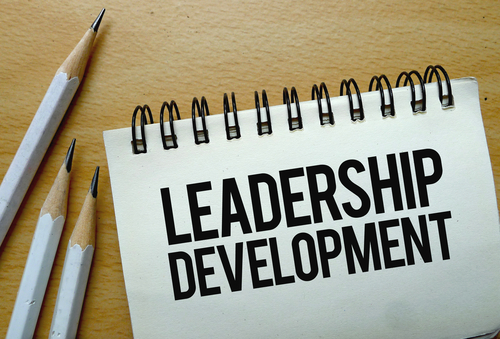Although traditional approaches to workplace leadership development aren’t producing the critical skills needed for the future, today’s leading organizations are evolving the way they develop leaders. This was one of the key findings of recent research from Torch, a people development platform, and Harvard Business Review Analytic Services.
The study, based on the responses of 665 business leaders across industries globally, found that leadership development is changing in four key ways to support the needs of both leaders and organizations. One of those ways is redefining essential leadership skills, including the language we use around them.
“In the face of multiple global crises, growing uncertainty, hybrid work, workers who demand that their employers commit to inclusive values and actions, many firms have found that leaders need new skills in addition to more traditional management skills,” Elizabeth Weingarten, Head of Behavioral Science Insights at Torch, recently shared with HR Daily Advisor. “We see organizations investing more in the development of relational skills, such as active listening, empathetic communication, and the ability to inspire teams. In the past, these relational or ‘power skills’ were traditionally known as ‘soft skills.’”
Weingarten notes that leaders are shifting away from “the problematic binary of soft versus hard skills” because the language is misguided. “Calling these skills soft sends the message that they are easier to learn, or even that they may be innate– devaluing their role in the workplace,” she continues. “This couldn’t be farther from the truth. Relational skills are among the most important in our workplaces today, and they are not easy to get right, as anyone who has ever tried to sustain and strengthen a relationship with another person can attest to. Cultivating human relationships is perhaps the hardest, and most rewarding, work we will ever do.”
In this week’s HR Query, Weingarten shares how leadership development has evolved over time, how HR leaders can cultivate trusted relationships in the workplace, and key leadership skills that should be top of mind for organizations.
How has leadership development evolved over time, especially since the COVID-19 pandemic?
EW: There are so many ways to answer this, but I’ll pick two key points we found in recent Harvard Business Review Analytic Services research, sponsored by Torch. First, the strategy of leadership development is changing, and has changed significantly, since the pandemic. Leadership development is moving from one-size-fits-all to a one-size-fits-one approach inside many organizations. In fact, 86% of respondents agreed that personalized leadership development, like coaching and mentoring, is required in our ever-changing work environment. To quote Dani Johnson, cofounder and principal analyst for RedThread Research, organizations are starting to realize that leadership development must change to meet the evolving needs of leaders: “We’ve heard all kinds of things about support for leaders that we haven’t heard in the past. Leadership development isn’t just a one-time, two-week course and then you level up. Leadership is a deeper challenge, and they need consistent support.”
The scope of leadership development is also changing from exclusive to inclusive. Leadership development opportunities like coaching and mentoring used to be limited to executives. Today, 64% of research respondents strongly agreed that it’s important to provide leadership development more broadly across their organizations. Part of this reflects diversity, equity, and inclusion commitments organizations made in 2020 after the murder of George Floyd catalyzed protests around the world. Indeed, about half of the organizations said that they’re working to increase the equity and inclusiveness of their coaching and mentoring programs.
What are some of the key leadership skills that organizations should have top of mind?
EW: Organizations need to be thinking about developing leaders who can find a balance between empathy and accountability. Our founder and CEO, Cameron Yarbrough, was prescient when he wrote about the empathy-accountability spectrum a few years ago because that’s exactly what we’re seeing organizations grappling with today. Ideally, leaders approach their roles with openness, compassion, and curiosity characteristic of empathy, but they also hold their colleagues accountable. In fact, he makes the point that being too empathetic—not holding employees accountable for their performance—can be actively harmful. Trying to find the balance between empathy and accountability is baked into the approach of our customer, Twitch. The gaming and content service company has a program designed to support managers to lead with both empathy and accountability.
Key findings of the study also found that many organizations are moving from authoritative leadership styles towards trust-based ones. In a post-COVID world, how can HR leaders cultivate strong, trusted relationships in the workplace?
EW: This is something I bring up a lot, but that’s because it’s so important and so rarely done well: active listening. HR leaders, maybe even more than other leaders, have the opportunity to model this skill for their organization, which includes listening for the total meaning of what someone is saying, not just the words but the feelings underneath, paying attention to nonverbal cues and responding sometimes more to feelings than to words.
And of course, it can also mean asking great questions and not assuming that you know someone’s perspective already. All these skills can help HR leaders cultivate trust in the workplace, and all of them are coaching skills that can be learned from coaches. Sometimes it can be hard to suddenly become a great active listener or question-asker if you haven’t experienced it yourself. I think the author and organizational psychologist Adam Grant puts it beautifully in his book Think Again: “Many communicators try to make themselves look smart. Great listeners are more interested in making their audiences feel smart.”
Is there anything else you’d like to add?
EW: One thing we found interesting from this research was that all respondents intend to increase their use of leadership development initiatives over the next couple of years, even in the context of economic uncertainty. And that was especially true for a subset of organizations that reported getting the most benefits from their leadership development programs—benefits that included increased revenue, productivity, and collaboration.


